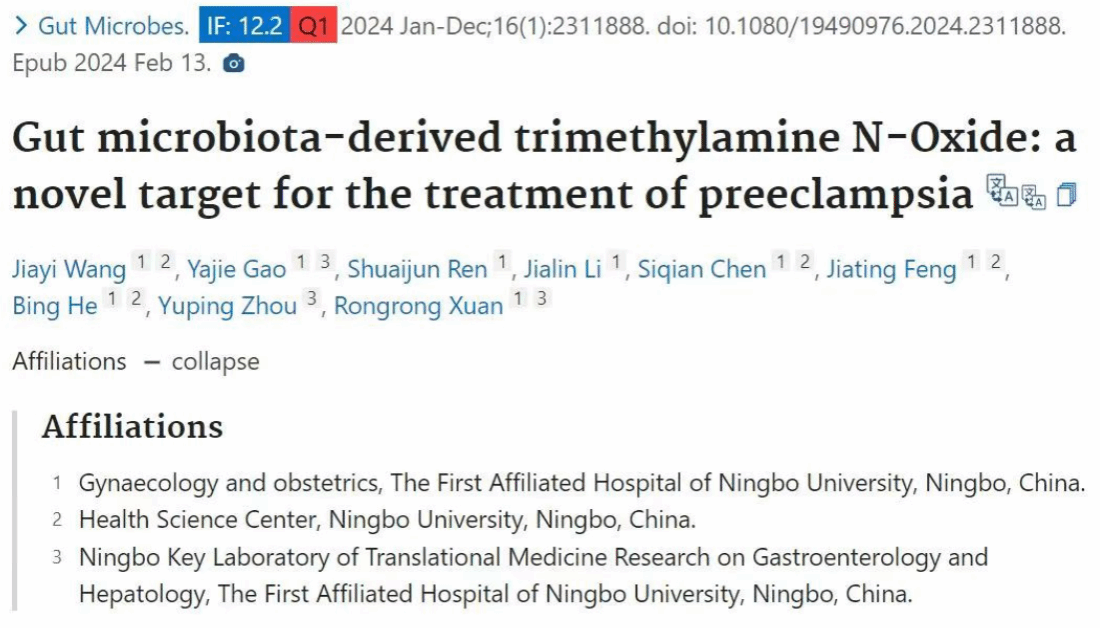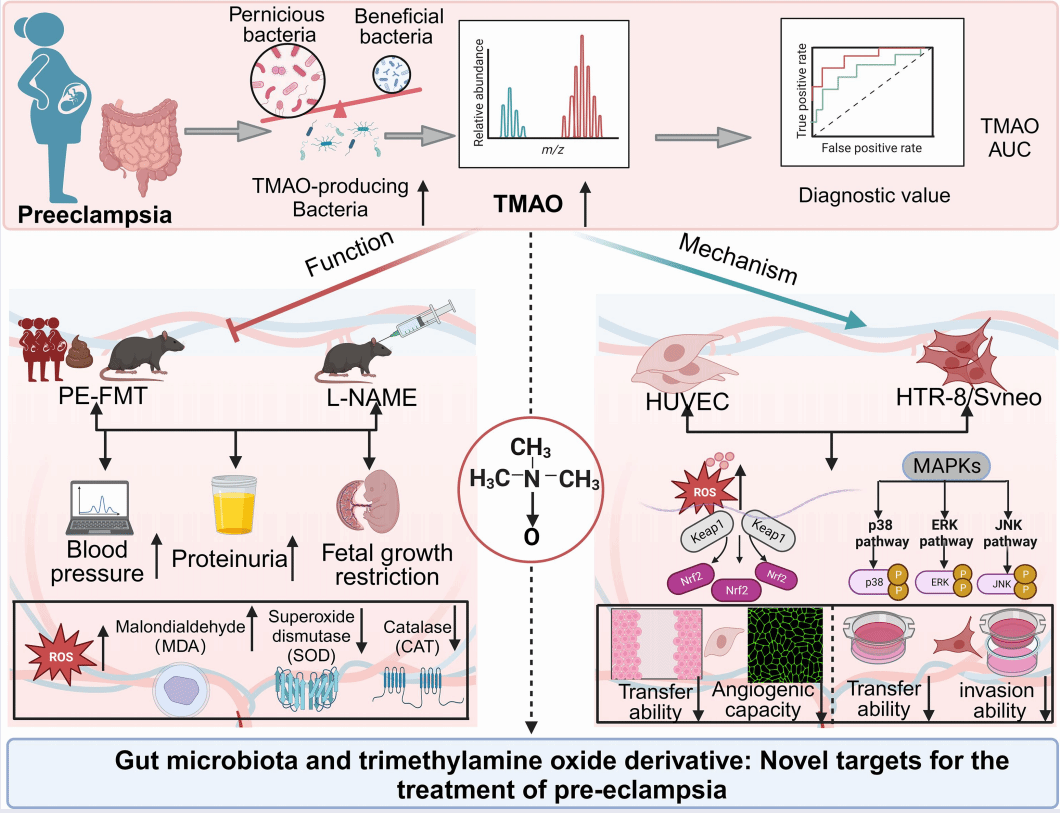On February 13th, Wang Jiayi, a 2021-level master's student specializing in Obstetrics and Gynecology from the Medical Department, was the sole first author to publish a research paper titled "Gut microbiota-derived trimethylamine N-Oxide: a novel target for the treatment of preeclampsia" in the journal "Gut Microbes" (a top-tier SCI dual-zone journal with an impact factor of 12.2). The study revealed the role and mechanism of the gut microbiota and its derivative trimethylamine N-Oxide (TMAO) in the progression of preeclampsia (PE), providing new insights into the pathogenesis and therapeutic targets of PE. The corresponding author of the paper is the chief physician Xuan Rongrong from the First Affiliated Hospital's Department of Obstetrics and Dr. Zhou Yuping from the Ningbo City Key Laboratory of Gastroenterology and Hepatology Translational Medicine Research. The research was supported by funds from the Zhejiang Provincial Basic Public Welfare Program Youth Project, Ningbo City Science and Technology Major Tackling Key Project, Ningbo City Natural Science Foundation Key Project, and Ningbo City High-End Medical Team Major Tackling Key Project.

PE is the most common complication of pregnancy, posing a serious threat to maternal and infant health and safety. Studies have shown that an imbalance in the gut microbiota can affect the progression of PE. TMAO, a metabolic product derived from the gut microbiota, may be related to the occurrence of PE, but its potential causal relationship and mechanism are still unclear. The research team found through clinical cohort studies that the levels of TMAO and the abundance of its source bacteria were significantly increased in patients with PE and positively correlated with the clinical progression of PE. Subsequent fecal microbiota transplantation experiments found that mice receiving fecal bacteria transplants from PE patients exhibited typical PE symptoms, with exacerbated oxidative stress and inflammatory damage, while the TMAO inhibitor DMB could reverse these changes in the model mice, improving pregnancy outcomes. Similar results were obtained in the classic L-NAME-induced PE mouse model. Mechanistically, TMAO affects the migration of vascular endothelial cells and angiogenesis, as well as the migration and invasion of trophoblast cells, by regulating signaling pathways related to inflammation and oxidative stress, thereby promoting the progression of PE. This multi-level and multi-faceted demonstration underscores the potential application value of TMAO as a target for the diagnosis and treatment of PE.

First Author's Profile: Wang Jiayi, a 2021-level master's student in Obstetrics and Gynecology at Ningbo University Medical Department, has participated in several research projects including Ningbo City Science and Technology Major Tackling Key Project 2025, Ningbo City Natural Science Foundation Key Project, and Zhejiang Provincial Natural Science Foundation Youth Project. As the first author, she has published two SCI papers in "Gut Microbes" (Q1, IF12.2) and "Anal Methods" (Q2, IF3.1).